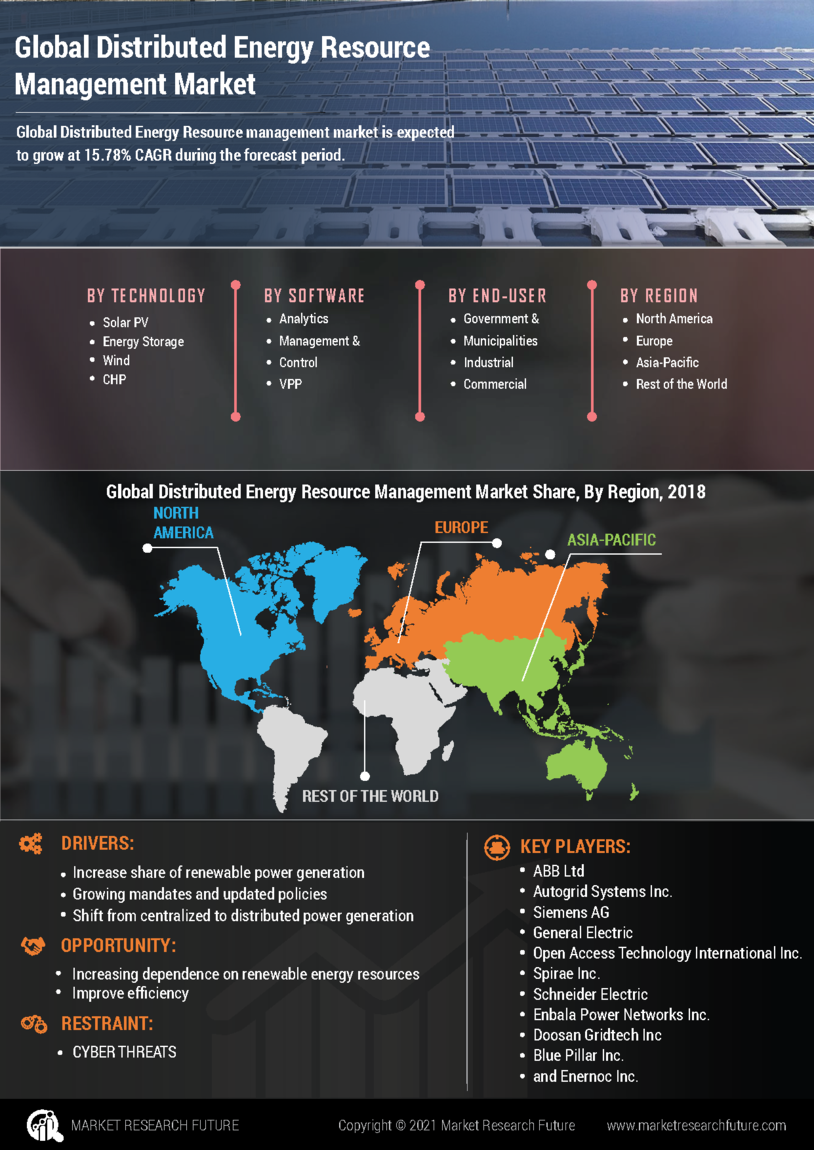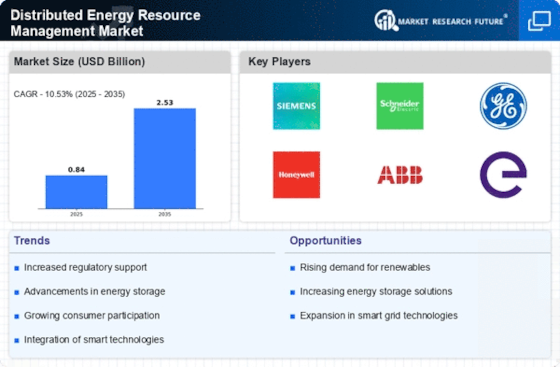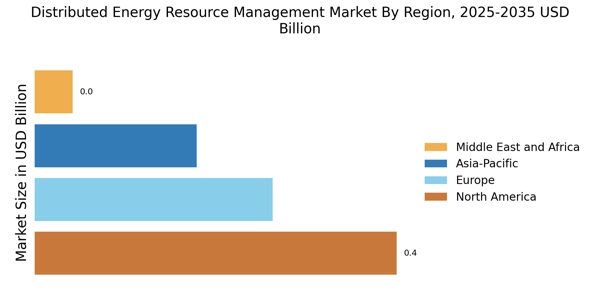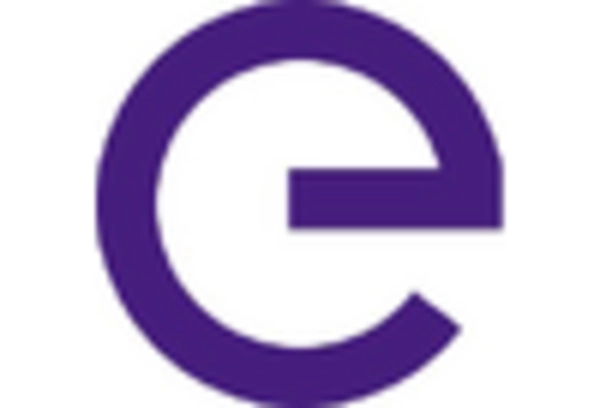Consumer Awareness and Engagement
Consumer awareness and engagement regarding energy management are increasingly driving the Distributed Energy Resource Management Market. As individuals become more informed about energy consumption and its environmental impacts, there is a growing demand for solutions that empower consumers to take control of their energy use. This trend is evident in the rising popularity of home energy management systems and mobile applications that provide real-time insights into energy consumption patterns. Research indicates that engaged consumers are more likely to adopt energy-efficient practices, potentially leading to a reduction in overall energy demand. As consumer engagement continues to rise, the Distributed Energy Resource Management Market is expected to expand, driven by the need for innovative solutions that cater to informed energy users.
Growing Adoption of Electric Vehicles
The growing adoption of electric vehicles (EVs) is emerging as a significant driver in the Distributed Energy Resource Management Market. As more consumers transition to EVs, the demand for efficient charging infrastructure and energy management solutions is escalating. This shift not only supports the reduction of greenhouse gas emissions but also necessitates the integration of distributed energy resources to manage the increased load on the grid. Projections indicate that the number of electric vehicles on the road could exceed 300 million by 2030, creating a substantial market for energy management solutions. Consequently, the Distributed Energy Resource Management Market is likely to expand as stakeholders seek to optimize energy use and enhance grid stability in response to this growing demand.
Increasing Demand for Energy Efficiency
The rising demand for energy efficiency is a pivotal driver in the Distributed Energy Resource Management Market. As consumers and businesses alike seek to reduce energy costs and minimize their carbon footprints, the emphasis on energy-efficient solutions has intensified. This trend is reflected in the growing adoption of smart technologies and energy management systems, which facilitate better monitoring and control of energy consumption. According to recent data, energy efficiency measures could potentially reduce energy consumption by up to 30% in various sectors. Consequently, the Distributed Energy Resource Management Market is witnessing a surge in innovative solutions aimed at optimizing energy use, thereby enhancing overall system efficiency.
Technological Advancements in Smart Grids
Technological advancements in smart grid infrastructure are significantly influencing the Distributed Energy Resource Management Market. Smart grids enable two-way communication between utilities and consumers, facilitating real-time data exchange and improved energy management. The integration of advanced metering infrastructure and automated demand response systems enhances grid reliability and efficiency. Recent estimates suggest that investments in smart grid technologies could reach approximately 100 billion dollars by 2025, underscoring the critical role of technology in modernizing energy systems. As utilities and consumers increasingly adopt these technologies, the Distributed Energy Resource Management Market is poised for substantial growth, driven by enhanced operational capabilities and improved energy distribution.
Regulatory Incentives for Renewable Energy
Regulatory incentives for renewable energy sources are playing a crucial role in shaping the Distributed Energy Resource Management Market. Governments worldwide are implementing policies that promote the adoption of renewable energy technologies, such as solar and wind. These incentives often include tax credits, rebates, and feed-in tariffs, which encourage investment in distributed energy resources. Recent data indicates that countries with robust regulatory frameworks have seen a significant increase in renewable energy capacity, with some regions achieving over 50% of their energy needs from renewable sources. As these policies continue to evolve, the Distributed Energy Resource Management Market is likely to benefit from increased investment and innovation in renewable energy solutions.

















